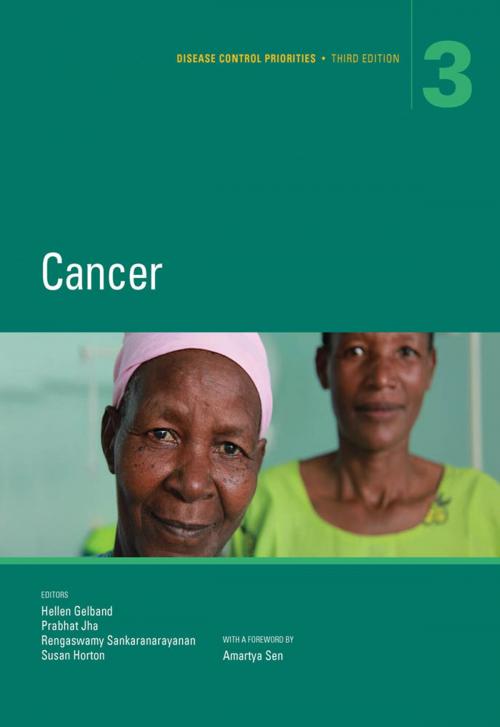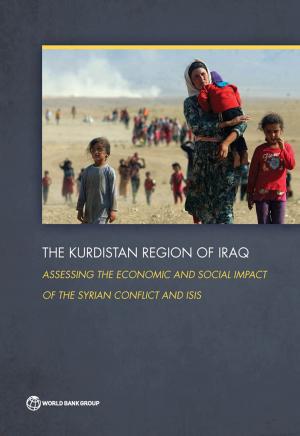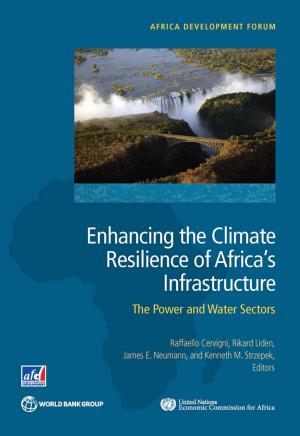Disease Control Priorities, Third Edition (Volume 3)
Cancer
Nonfiction, Health & Well Being, Medical, Patient Care, Physician & Patient, Specialties, Pathology, Radiology & Nuclear Medicine| Author: | ISBN: | 9781464803697 | |
| Publisher: | World Bank Publications | Publication: | October 29, 2015 |
| Imprint: | World Bank Publications | Language: | English |
| Author: | |
| ISBN: | 9781464803697 |
| Publisher: | World Bank Publications |
| Publication: | October 29, 2015 |
| Imprint: | World Bank Publications |
| Language: | English |
Volume 3, Cancer, presents the complex patterns of cancer incidence and death around the world and evidence on effective and cost-effective ways to control cancers. The DCP3 evaluation of cancer will indicate where cancer treatment is ineffective and wasteful, and offer alternative cancer care packages that are cost-effective and suited to low-resource settings. Main messages from the volume include: -Quality matters in all aspects of cancer treatment and palliation. -Cancer registries that track incidence, mortality, and survival †“ paired with systems to capture causes of death are important to understanding the national cancer burden and the effect of interventions over time. -Effective interventions exist at a range of prices. Adopting "resource appropriate" measures which allow the most effective treatment for the greatest number of people will be advantageous to countries. -Prioritizing resources toward early stage and curable cancers is likely to have the greatest health impact in low income settings. -Research prioritization is no longer just a global responsibility. Providing cancer treatment requires adequate numbers of trained healthcare professionals and infrastructure beyond what is available in most LMICs, especially low income countries. Careful patient monitoring is a requirement of good quality cancer care and this often involves laboratory tests in addition to clinical examination. Even if financing were immediately available to build or expand a cancer control system, reaching capacity will take many years.
Volume 3, Cancer, presents the complex patterns of cancer incidence and death around the world and evidence on effective and cost-effective ways to control cancers. The DCP3 evaluation of cancer will indicate where cancer treatment is ineffective and wasteful, and offer alternative cancer care packages that are cost-effective and suited to low-resource settings. Main messages from the volume include: -Quality matters in all aspects of cancer treatment and palliation. -Cancer registries that track incidence, mortality, and survival †“ paired with systems to capture causes of death are important to understanding the national cancer burden and the effect of interventions over time. -Effective interventions exist at a range of prices. Adopting "resource appropriate" measures which allow the most effective treatment for the greatest number of people will be advantageous to countries. -Prioritizing resources toward early stage and curable cancers is likely to have the greatest health impact in low income settings. -Research prioritization is no longer just a global responsibility. Providing cancer treatment requires adequate numbers of trained healthcare professionals and infrastructure beyond what is available in most LMICs, especially low income countries. Careful patient monitoring is a requirement of good quality cancer care and this often involves laboratory tests in addition to clinical examination. Even if financing were immediately available to build or expand a cancer control system, reaching capacity will take many years.















